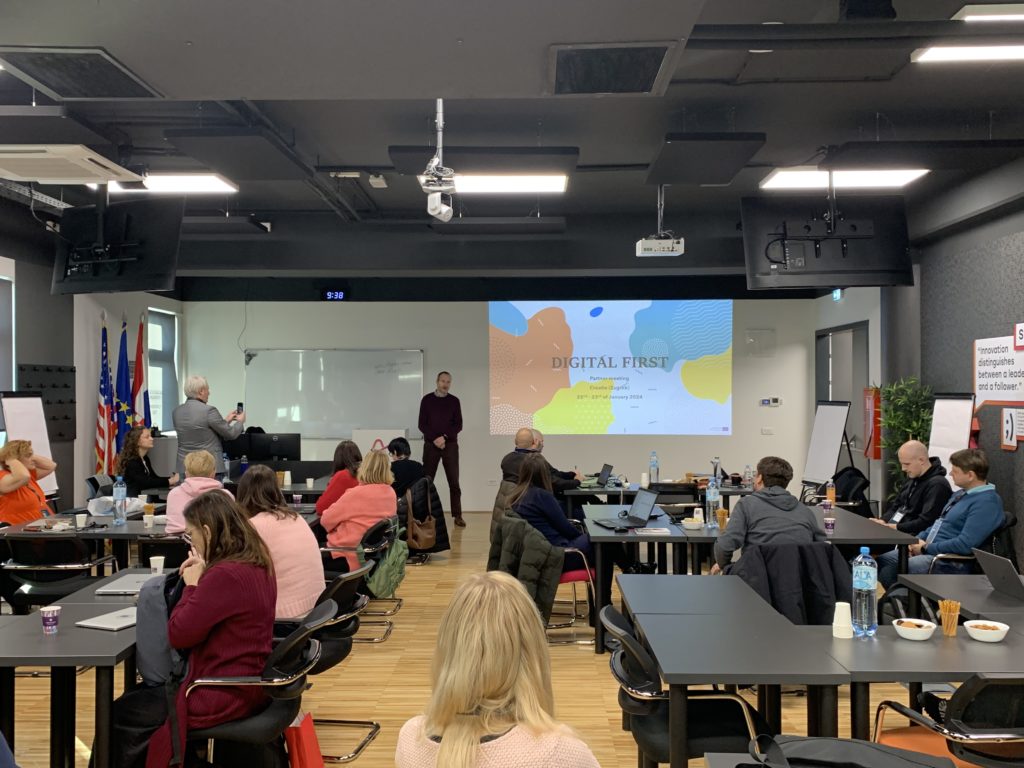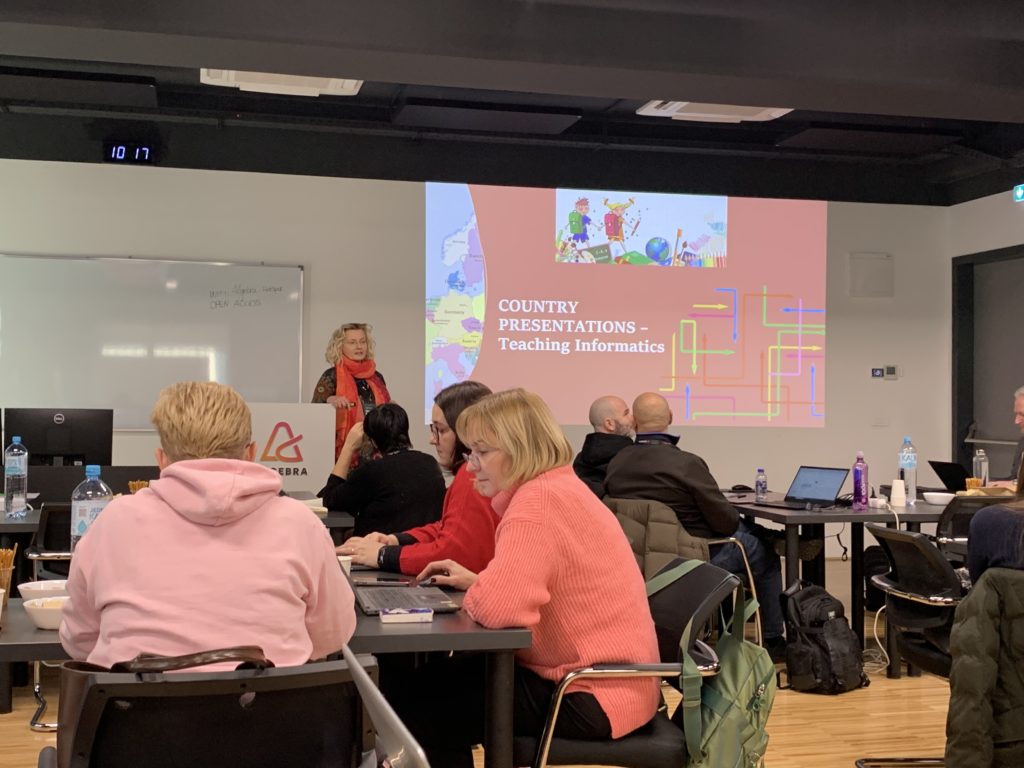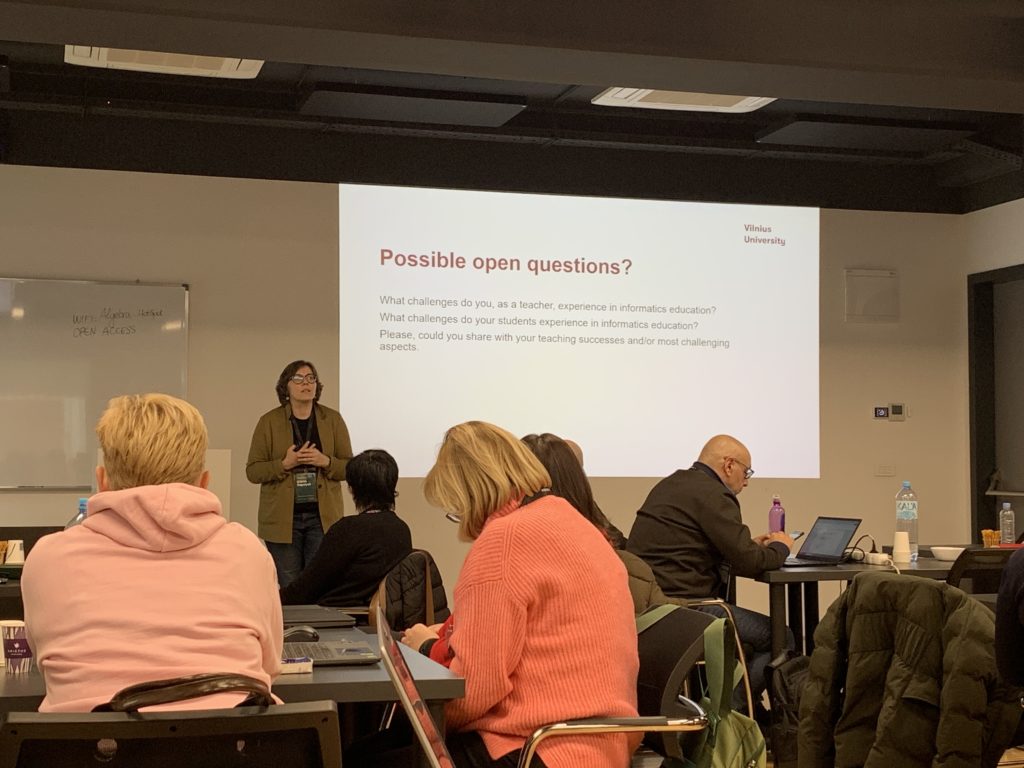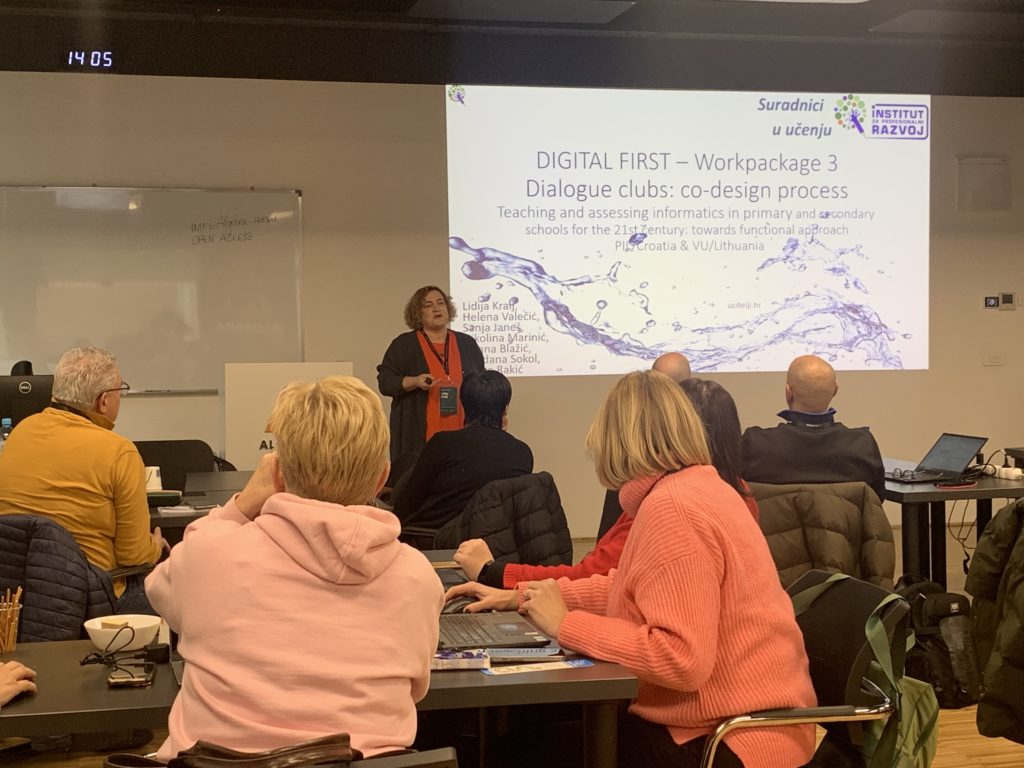
24 Jan DIGITAL FIRST Kick-off Meeting in Zagreb: Shaping the future of informatics education in Europe
24 Jan, 2024

The DIGITAL FIRST project “Digital tech as the first language: Informatics for digital natives”, a groundbreaking initiative aimed at shaping the future of informatics education in primary and secondary schools across Europe, launched its activities at the kick-off meeting hosted by Algebra University in Zagreb, Croatia on 22-23 January 2024.
ALL DIGITAL is delighted to be a part of this dynamic project consortium consisting of 15 organisations including universities, teacher training centers, primary and secondary schools, NGOs and a public body from 11 European countries.
DIGITAL FIRST partners are committed to work towards a transformation in informatics education to match the needs of today’s children, the digital natives, born in a digital world and arriving at school education already with certain level of digital skills. The project calls for a move from traditional approach in informatics education based on programming languages and technical knowledge to an innovative pedagogical approach focusing on computational thinking to help students learn how to address real-life challenges. The shift in education will encourage young generation to be “active creators” of the digital world, rather than “passive consumers”.
During the kick-off meeting, an enlightening exchange occurred regarding the state of informatics education in the participating countries. The discussions highlighted a wide spectrum, ranging from no systematic implementation in some countries to the presence of compulsory or elective courses at primary and secondary levels of education in others. This exchange creates a dynamic learning environment where partners have much to share and learn from each other, working on a common roadmap and ultimately benefiting from the collective outcomes of the project.
Following a research and data collection on the informatics education across Europe in the initial months, the three-year project will develop and test innovative pedagogical approaches to be piloted in Bulgaria, Croatia, Cyprus, Finland, Greece, Italy, Lithuania, Portugal, Slovenia, and Spain.
The project has a particular emphasis on capacity building of education providers and empowering teachers through plenty of learning and exchange opportunities, including a network of informatics teachers and training resources. All stakeholders will be welcome to have their say in shaping the future of informatics education through the project’s dialogue clubs to be organised in each project country. The project outcomes and collected data will also contribute to the improvement of national policies and EU level guidelines to shape the future of digital education.
Project partners: Algebra University College (AUC – Project coordinator, Croatia), Universidade da Coruna (UDC, Spain), Vilnius University (VU, Lithuania), Turku University (TU, Finland), Faculty of Education (FED, Slovenia), Ministry of Education (MES, Slovenia), Primary School Bratov Polančičev Maribor (PSBP, Slovenia), Primary School Toneta Čufarja (PSTC, Slovenia), Centro de Formação da Póvoa de Varzim e Vila do Conde (CFAE-PVVC, Portugal), Project LightHouse (PLH, Greece), T-HAP (Cyprus), Partners in Learning (PIL, Croatia), Industrial Technical Institute “Ferraris Pancaldo” (ITI, Italy), Secondary school “St. St. Cyril and Methodius” (CAM, Bulgaria) and ALL DIGITAL (AD, Belgium).
The DIGITAL First Project (No: 101132761) is funded by the European Union. Views and opinions expressed are however those of the author(s) only and do not necessarily reflect those of the European Union or the European Education and Culture Executive Agency (EACEA). Neither the European Union nor EACEA can be held responsible for them.
For more information: Selin Tagmat, ALL DIGITAL, selin.tagmat@all-digital.org (Communication partner)











